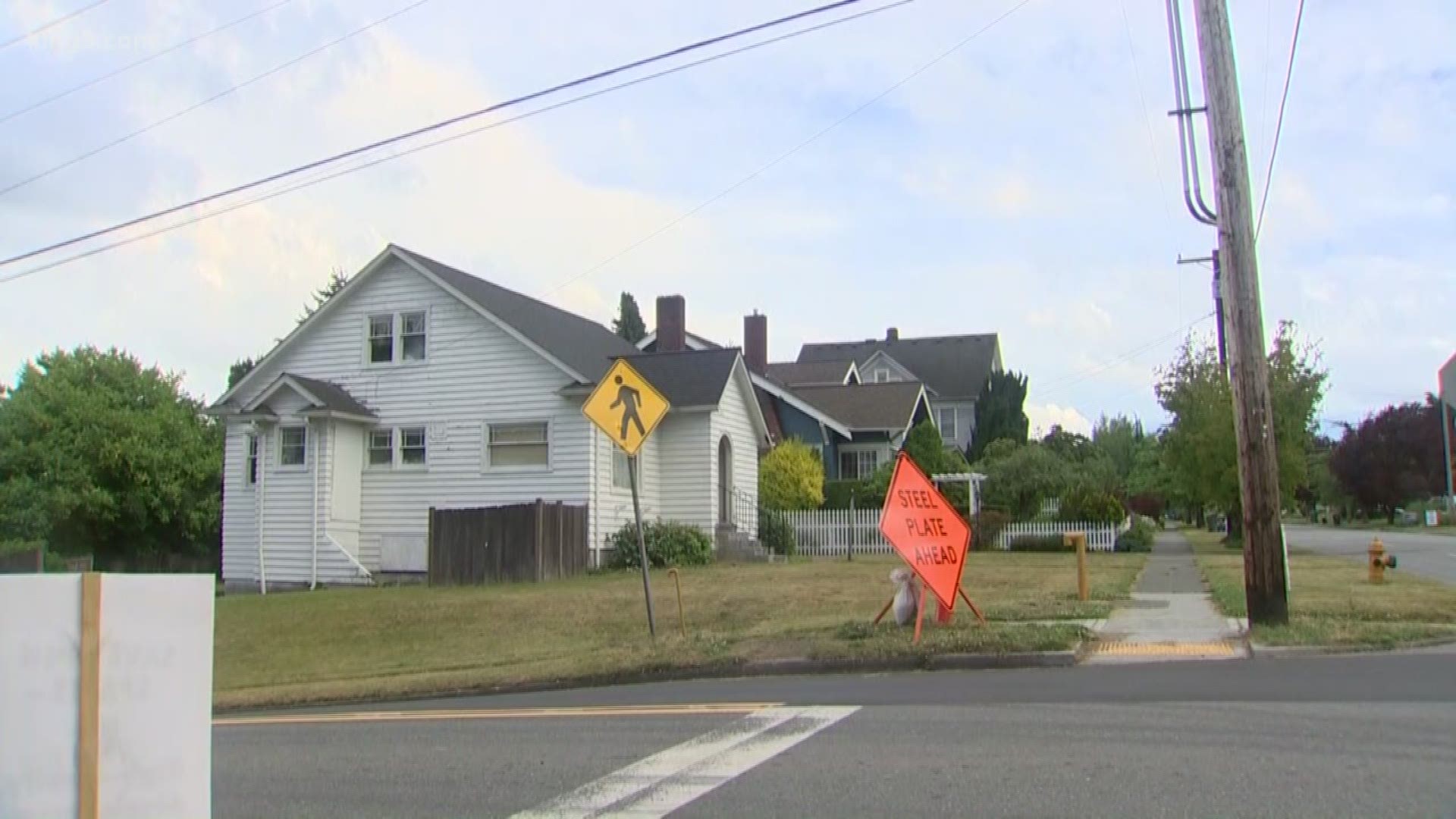EVERETT, Wash. — Everett residents spoke out Wednesday night one month after city council passed a temporary moratorium on certain supportive housing that also stalled a plan to build affordable housing for homeless students and their families.
A public hearing was held to gather testimony about an emergency ordinance that was adopted by the Everett City Council on June 12. Council members also aimed to identify issues that need to be reviewed and discuss alternatives to current regulations.
The ordinance allows for a six-month moratorium on supportive housing in single-family residential zones. Supportive housing means a combination of housing, including low barrier housing. It was added as a land use to the zoning code in 2016, according to the city.
"This new land use category was established to address our community's needs regarding the homeless population," said Allan Giffen, the city's planning director.
Housing Hope, a nonprofit that works to get homeless into housing in Snohomish County, is working on a project that would help homeless families. Everett Public Schools agreed to lease land to Housing Hope so the organization can build 34 apartment units for the district's homeless students and their families.
Everett Public Schools had 1,266 homeless students in the 2017-18 school year, according to data from the Office of Superintendent of Public Instruction.
The location the school district and Housing Hope agreed on for development is the playfield on Norton Avenue. Residents living near the property are pushing back with their concerns about the development.
Kathy Gambill lives nearby and said she is against the plan, because she thinks the playfield is needed.
"It is very well used. It's been there forever. In our city, we have very few green spaces left, because of the growth of our city," said Gambill. "I think there are other and better places for this to happen."
Amy Foster agrees. She also lives in the area and thinks there are buildings available downtown that would be a better fit for housing.
"Losing a green space can affect property values,” Foster said. “Yes, it is the elephant in the room, but as a person who bought a house at $289,000 and watched it plummet to $150,000, and is just now recovering, my home value means something to me.”
One woman told city council, "there is an impact from these units. It is important to have balance in these neighborhoods."
During the meeting, neighbors to the playfield said there were already affordable housing units in the area and the city needed to make sure it is not putting the units in one part of Everett.
However, other residents were in support. Michelle Fessler shared a personal story during the meeting, describing the housing insecurity her family dealt with while she was in school.
"2010-2013 was a difficult time for my family," Fessler said. "We moved nine or 10 times."
Fessler said it had a negative impact on her school work.
"I urge you to reverse the ordinance and lift the moratorium. We are talking about 34 units for homeless kids and their families. We need to place people above property values," said Kessler.
A school teacher also spoke up during the public hearing.
"Everett deserves better than politicians who say they are going to reduce homelessness and then vote to ban housing for homeless people,” the teacher said.

